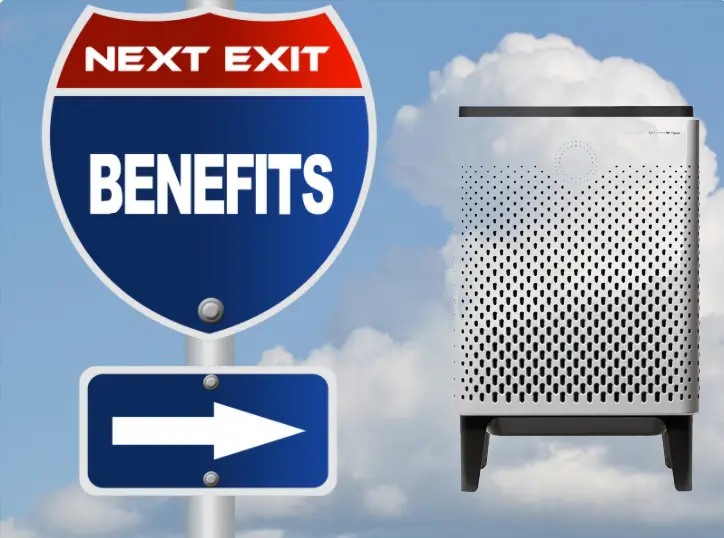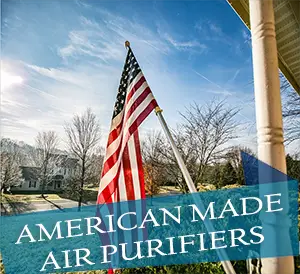At a Glance
You’ve probably wondered: what are the benefits of an air purifier? In case you’ve guessed it, the clue is in their name – air purifiers clean the air you breathe. As a device to clean air in the home, they have been popular nowadays and many claim their usefulness for indoor settings.
Among its list of targets include dust, pollen, smoke/tobacco, dust mites, and other small particles that linger in the air. Whether it’s a bad hay fever symptom or a stuffy feeling from too much dirt and mold in your indoor space, air purifiers work best for the job.
We care about your health and those around you, whether they’re your family, friends, colleagues, or others. That’s why we wrote this article to shed some light on what air purifiers have to offer. Aren’t you curious? Read more below to find out how they work!
What are the benefits of using an air purifier?
Let’s cut to the chase – here are 10 good reasons why you should buy an air purifier for your indoor setting:
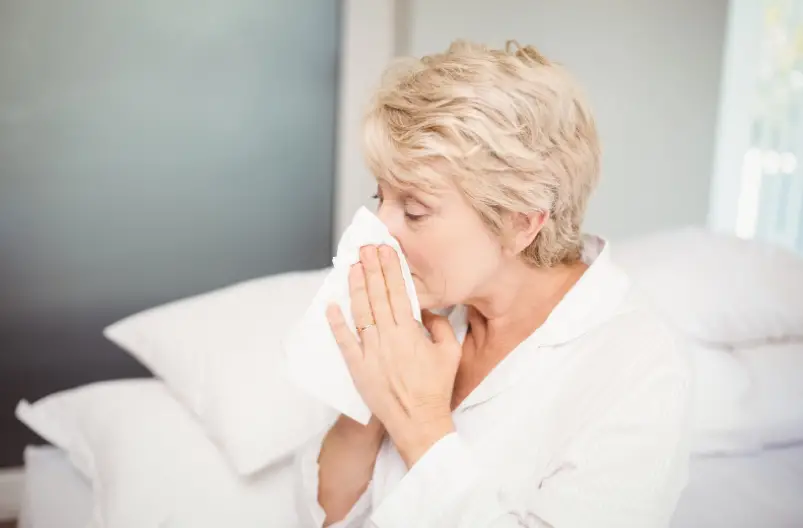
1. Less sneezing, more working.
Let’s face it – many of us work from home (or attend online classes) nowadays and it’s irritating when the pollen count rises, we open the window, and bam – hay fever kicks in. Over 19 million adults in the United States have allergic rhinitis (also known as hay fever) – and even more globally, so you’re not alone in this.
Constant sneezing is the most common symptom of hay fever (watery eyes is the second) and regardless, both these symptoms will have an impact on our everyday life. You can’t expect yourself to submit work documents (or submit your assignments on time if you’re a student) when your rhinitis ruins all the fun for you.
So, how does an air purifier help with allergic rhinitis? The answer is simple – it’s in the HEPA filter.
What’s a HEPA filter, you say? A high-efficiency particulate air filter (HEPA filter) is a special type of filter that’s found in many home devices, such as vacuum cleaners and air conditioners. Did you know that you can also find them on air purifiers? Here’s what they do:
- HEPA filters trap particles caught in the air, such as pollen, dust, pet dander, dirt, tobacco smoke, and the like – anything that’s roughly 0.3 microns in size.
- They need to be replaced every 6 months to be effective; otherwise, they’ll spew back all these dirty particles into the air! (Thank goodness for filter replacement reminders or indicators in most air purifiers nowadays…)
- Different kinds of HEPA filters exist for various purposes. Aside from regular HEPA filters, there’s also True HEPA, which is much more effective in terms of filtering, plus the H13 or medical-grade HEPA filter, which is more suitable for severe allergy symptoms and very bad air quality (such as in hospitals, discussed below).
Therefore, when the HEPA filter acts out its job, you’ll less likely breathe in these allergens from the air, resulting in less frequency of sneezing and other rhinitis symptoms. If you live in a place where dust and other similar pollutants are abundant (such as in the city or near industrial settings), we greatly recommend air purifiers to help you manage your allergies.
With that in mind, here’s how to make your HEPA air purifier more efficient in alleviating excessive sneezing:
- Run it all day, if possible, or at least 8 hours a day
- Change the filters as recommended by the manufacturer
- Place your air purifier strategically (not in blocked areas)
- Don’t forget to regularly wash the pre-filter as well
- Continue to clean your surroundings as you normally would
- Don’t open your windows for too long (especially during pollen season)
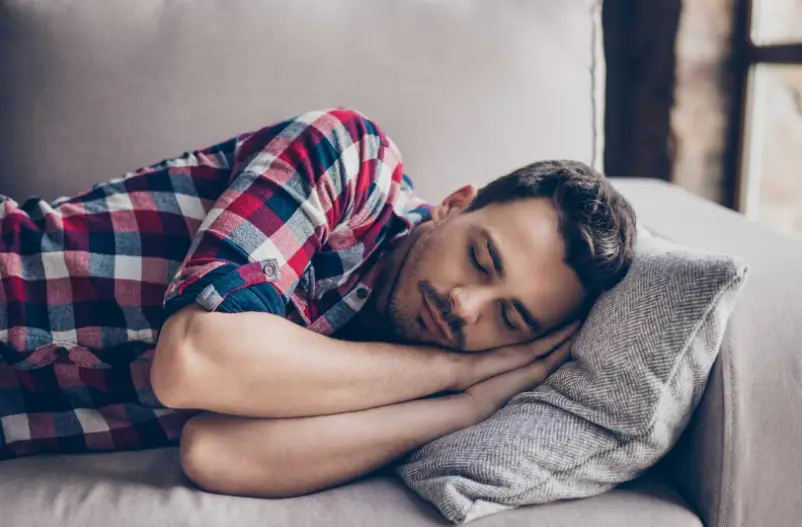
2. You’ll sleep like a log.
No one likes a short and interrupted sleep, especially because it’s bad for both your physical and mental health. The problem lies when you live somewhere where the air quality isn’t so good, so you start experiencing the following:
- Frequent headaches due to stuffy air
- Constant sneezing and/or coughing due to dust
- Asthma and/or allergy attacks
If you notice any of the above-mentioned symptoms, your air is most likely dirty and you’ll need an air purifier to minimize the pollution that you have indoors. As mentioned above, a HEPA air purifier will help in taking care of this mess because it will absorb even the smallest particles from the air you breathe, leaving you with a fresher space to sleep in.
What’s more, air purifiers nowadays typically have smart features which allow you to sleep soundly and not have to wake up in the middle of the night to operate them properly. Here are some of them:
- Timer feature. Most air purifiers have 8-hour timers (or more, depending on the model/brand), which is very helpful if you want some R&R without having to turn off the unit manually by 3 AM. Simply set the timer and sleep comfortably – no more midnight breaks!
- Air quality sensors. Gone are the days when you need to manually switch from the lowest speed to the highest – today’s technology allows your air purifier to automatically detect the air quality levels. From that detection, your air purifier will adjust the fan speed on its own – no need to get up (or use the remote) to do it yourself.
With these two features, you’ll have more snooze time and less hassle in the middle of the night. After all, most asthma attacks and hay fever symptoms tend to happen late at night. Moreover, lack of sleep is linked to a weaker immune system, so if we lose the snooze, we’re more likely to get sick.
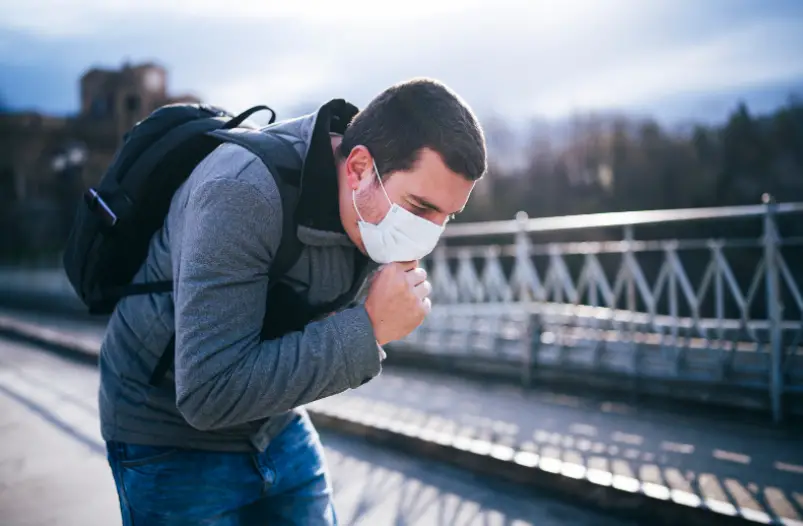
3. Less awkward coughing.
In today’s time, coughing can be a very embarrassing situation, especially if you’re with guests at home (or in your office/firm). Coughing is commonly caused by the following pollutants in the air:
| Cause of coughing | Where it comes from |
| Pet dander | Do you have pets at home? Did a guest or a family member recently bring a dog or cat to your home? If so, pets will shed dander, which will go into the air and cause you to cough excessively if inhaled in large amounts (and often). |
| Smoke particles | Does someone in the household smoke too often? Do they smoke indoors? Are there guests who also smoke? These particles will linger in the air and will cause coughing symptoms as well.
If you live in an area where there are a lot of factories, there’s also a high chance of coughing excessively due to the smoke of such facilities. |
| Dust | Dust accumulation is normal, but if you haven’t cleaned your house for a long time, it’s bound to gather dust on surfaces such as your couch, coffee table, counters, and more.
When dust flies into the air, it will also make you cough excessively just as it can cause you to sneeze. |
| Pollen | Keep an eye out for high pollen count reports in your locality. Usually, springtime is a warning for those with hay fever or pollen allergy.
During these times of the year, if you find that you’re coughing too much, you’ll need an air purifier to help manage pollen count in the air – especially if you maintain a garden. |
| VOCs | Volatile organic compounds, also known as VOCs, are found in most household items, such as bathroom cleaners, laundry detergents, and the like.
If you inhale too much of these VOCs then they will likely give you some coughing symptoms. |
Worry not – these allergens and pollutants will go away (or at least lessen) with the help of an air purifier. Pet dander, smoke, pollen, and dust can be easily captured and kept away by HEPA filters while VOCs are usually neutralized with the help of activated carbon filters. Both of these filter types are found in many air purifiers in the market today.
On top of that, you’ll also want to know about CADR (Clean Air Delivery Rate), which is commonly found in many air purifier specs. Typically, a good CADR should be twice as much as the intended room size. For instance, if you have a room that measures 200 square feet, you may want to have an air purifier with at least 400 CADR.
Take note that there are different CADRs for smoke, pollen, and dust. Therefore, depending on your pollution problem, you can pick an air purifier with a specifically higher CADR for a certain pollutant. For example, if your problem lies in smoke and tobacco, look for an air purifier with a high CADR for smoke.

4. No guilt over fried food.
Do you often fry fish, chicken, and the like? If so, it’s more than just the smoke that will make your house feel stuffy, but also the lingering odor.
Activated carbon, also known as activated charcoal filters, which are found in many air purifiers nowadays, is known to neutralize kitchen odors, which is why you’ll find an air purifier in most restaurants and fast food kitchens. Certain studies have long pointed out the connection between activated carbon and odor management.
Furthermore, here’s what you need to know about activated carbon/charcoal:
- It’s been used for treating poison in the past. If you ingested something bad or if you overdosed on a certain medicine, activated carbon has been known to be a long-standing traditional antidote.
- Activated carbon/charcoal works by carrying toxins away due to its porous texture. This makes it a great carrier of not just toxins, but also bad odors in the air.
- You’ll also find it in other products. From toothpaste to ice cream, activated charcoal has been lingering around in many products nowadays thanks to its anti-toxin effects.
Therefore, if you often need to fry food for your guests or if you own a restaurant, having an air purifier will significantly reduce that nasty kitchen odor. Just make sure you get an air purifier that has an activated carbon/charcoal filter on it (just a regular HEPA filter isn’t enough for kitchen odors).
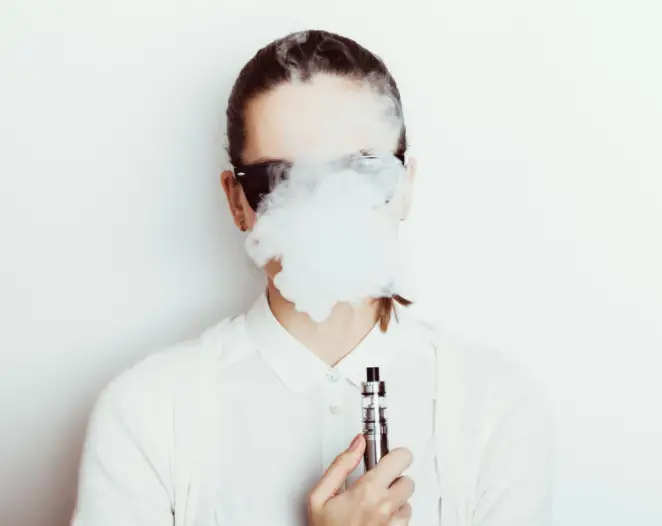
5. Fresh like no one smoked.
You walk into the living room and you suddenly smell tobacco. Not only does it put you off – but it’s also a threat to your respiratory system (and the rest of your body)! Here’s what secondhand smoke will do to your body:
- Lung cancer
- Stroke
- Poor reproductive health in women
- SIDS in babies
- Coronary heart disease
- Other respiratory problems
- Nasal and ear problems
Even if you don’t smoke, you are still at risk for developing cancer if you inhale secondhand smoke. But what does an air purifier have to do with all of these?
The answer is simple – air purifiers will also eliminate smoke from the air that you breathe using HEPA filters. Cigarette smoke particles are usually small enough to be captured by these filters, which is why most air purifier manufacturers even have specific filters that are meant for tobacco smoke.
However, not all of the smoke can be filtered by HEPA air purifiers alone. For the off-putting smell, you will need an activated carbon filter, which is good at eliminating kitchen odors and VOCs, as mentioned above.
Therefore, for best results, we recommend an air purifier with both HEPA and activated carbon filters for smoke. And, as mentioned above, look for a high CADR rating for smoke (typically up to 400 or more).

6. Germs go away!
Air purifiers will also get rid of germs using the HEPA filter, but we recommend getting an H13 or medical-grade HEPA filter, which will trap particles that are as small as 0.1 microns in size. Most germs, bacteria, and viruses are of that size so it makes sense to look for this type of filter when considering an air purifier to ward off illnesses.
However, if you’re concerned with smaller particles, such as viruses (which are smaller than germs and bacteria), you’d best find an air purifier with a UV lamp, which will sterilize the air and/or the surrounding area.
Most air purifiers in the market nowadays have UV-C lamps that will work effectively against most viruses and bacteria, as well as mold. However, when using UV lamps, you have to consider safety precautions. Here’s what you should do when operating it:
- Do not stare at it with the naked eye. If you have to look into UV light, make sure you have protective gear, such as a glass, which will block the harmful UV light. Too much exposure to UV light will result in eye and skin problems.
- Don’t use it for very long periods. UV lamps are great for disinfecting surfaces but don’t turn them on for too long. The reason lies in ozone – which some (if not all) UV lamps have. Too much ozone is dangerous for both living beings and the environment, which is also why not all air purifiers have UV lamps.
- Don’t solely depend on it to keep viruses away. Although UV lamps can help in killing most of the viruses and bacteria in the air or on surfaces, still don’t forget to wash your hands! Practicing proper hygiene is still the best way to keep the viruses away and UV lamps are just a supplementary method.
- Know that UV lamps are still constantly being studied. While UV lamps have been in countless studies such as this one when it comes to disinfection of surfaces, they are still a relatively new technology and means of clearing a room or area of viruses and bacteria.

7. Fido (or Tabby) won’t worsen your allergies.
Pet dander usually comes from dogs and cats that linger around the sofa. Among the many allergy and asthma triggers out there, pet dander is one of them. Therefore, if your pet sheds a lot (or if it’s the shedding season), expect your allergies and/or asthma attacks to worsen.
Additionally, although some people are immune, if you experience any of the following symptoms, you’re likely to have pet allergies:
- Excessive coughing and sneezing
- Watery eyes
- Irritated or itchy mouth and nose
- Runny nose and/or congestion
Air purifiers with HEPA filters are already sufficient for suppressing pet allergies because pet dander is typically large enough to get filtered even by the washable outer filters. Just make sure to constantly wash the filter media when needed.
With that said, if you do want an air purifier that’s specifically aimed at pets, look for brands that feature a special “pet filter” in their lineup. While most air purifiers have a standard HEPA filter, some brands do have unique setups that are tailored to a certain kind of allergen – one of them being pet dander.
However, this doesn’t mean that you can just run your air purifier and expect all the pet dander to go away! You still need to bathe your pet regularly and maintain a good grooming schedule if you want to keep your place pet dander-free.
8. VOCs? Neutralized.
Can bad air quality make you sick? The answer to that is yes – particularly when we talk about VOCs. These VOCs (volatile organic compounds) are known to make you sick. Toluene, a VOC, has long-term effects on the brain.
Do you know where they come from? Here are some household items that potentially leak out VOCs now and then:
| Common VOC sources | Explanation |
| Finishing materials | This includes paint, adhesives, varnishes, sealants, and the like. |
| Composite wood | Because composite wood is not purely organic, it will contain some VOCs. |
| Vinyl tiles | Just like composite wood, the word “vinyl” itself is already a hint. |
| Cleaning products | From bleach to laundry detergents, you’ll find many supermarket brands of household cleaning products with a lot of VOCs, so use them sparingly. |
| Certain cosmetics, beauty, and hygiene products | Even though many cosmetic brands are moving towards a greener revolution, some market brands still have VOCs that aren’t so good for your health – especially much older brands. |
| Certain art materials | Do you know why most permanent markers smell bad? That’s because of toluene – a VOC commonly found in solvents that, when inhaled in large amounts, will make you feel dizzy. |
The problem lies with most of us being already accustomed to the chemical smells, but we don’t realize that it could already be affecting our internal organs! That is why having an air purifier will help a lot to neutralize such VOCs – look for an air purifier with activated carbon filters.

9. Doctors need them – a lot.
HEPA filters are science-backed – a 2021 study found the effectiveness of HEPA filters in capturing airborne bacteria. That’s particularly why HEPA filters are sought-after (and sometimes even required) by hospitals and clinics, especially for maintaining safe air quality.
Many patients come and go in a hospital (or even a small clinic), which is why it’s a scary place to be in if you’re wary of airborne diseases and/or even those that are simply communicable (can be passed on to someone).

10. Fresh air, healthy and happy life.
With all the above-mentioned benefits, an air purifier will help you live a higher quality of life. Not only will it clean the surrounding air but it will also keep you away from health problems. Such benefits result in less likelihood of feeling stressed since you won’t get sick too often.
What’s more, since clean indoor air will help you sleep better (as mentioned above), that also has a positive effect on your overall mood. Insomnia is linked to mental health problems so having an air purifier around to do the cleaning job for you will help you make your mind feel at ease.
The benefits of sleeping with an air purifier
You’ve probably seen people sleep with this strange device on their nightstand. You might be wondering: why get an air purifier for your bedroom? Here are some reasons:
1. They help resolve certain sleeping problems
Do you notice any of the following sleeping problems that disrupt your snooze? Here are some reasons why you’ll need an air purifier to alleviate them (and which type or feature of air purifier to look for):
| Sleeping Problem |
What you need | Look for an air purifier with… |
| Excessive coughing | A clean environment with minimal dust, pollen, pet dander, smoke, and other allergens will help you ease your coughing.
Additionally, VOCs and mold can also cause coughing so if that’s lessened around the house then your coughing symptoms will also subside. |
Modifiable fan speeds |
| Asthma/allergy attacks | If you have asthma or allergic rhinitis, the best that you can do is to minimize pollen, pet dander, smoke particles, and dust from the air.
You’ll need something that will clean up these particles so you won’t inhale them – and it needs to be done constantly to lessen your symptoms, especially during the pollen season. |
Higher air change per hour |
| Stuffy odor/mold | People who live near the ocean or are in a tropical place are more likely to get mold problems. That’s because mold gets into damp areas of the house.
For mold and mildew, which causes a stuffy odor that makes you dizzy, you will need to eliminate the source of mold and keep it from forming. |
You may also want to get an air purifier with a dehumidifier function |
| Motor noise | Not everyone sleeps with motor noise very well. If you are a light sleeper, you will need a unit that’s not a nuisance at night with its noise levels. |
A quiet mode, which will significantly lower the fan motor operation and noise |
| Light sensitivity | Same with motor noise – some people are light sleepers and they don’t do well even with a speck of light as they only sleep in total darkness. |
|
. Most of them have built-in timers
A timer option is found in many other home appliances, such as TVs, oven toasters, microwaves, air conditioners, and more. The main purpose of a timer is to help you do other tasks, such as wash the dishes or mp the floor, without having to worry about the appliance in question.
This works the same with air purifiers – a timer option will automatically shut off the unit so you don’t have to wake up in the middle of the night just to do that. In the same way, you can use this feature when you want to purify the room air when you’re outside (or doing other chores).
3. They generally won’t consume a lot of electricity
A typical air purifier will only consume around 50 watts, which is slightly lower than an average laptop computer’s consumption. Most of them are even Energy Star-certified to make sure that they don’t consume a lot of electricity. However, certain factors should be kept in mind if you’re conscious about wattage:
- Fan speed. Most air purifiers have 3 to 4 fan speeds to choose from, which can be adjusted manually or automatically if your unit has a sensor. While at it, we do recommend a unit with a sensor so you don’t have to do the work all the time. Therefore, when the air isn’t very polluted, your air purifier will automatically switch to the slowest fan speed.
- Timer option. A timer option ensures that you won’t overwork your air purifier, resulting in more energy savings. Most air purifiers can be set up to 8 hours of continuous running or more, depending on the brand and model. And, as mentioned above, air purifiers with timers work wonders for snooze time to avoid constantly waking up.
- Quiet mode. A quiet mode can be found in most air purifiers nowadays, which is even different from their slowest fan speed. This is best for use during nighttime when you don’t want too much motor noise but still want clean air when you wake up in the morning. Air purifiers with quiet modes also save more electricity in the long run.
- Pollution levels. An air purifier with a higher air change rate will work best on intense pollution, especially in urban areas. If you pick a properly-rated air purifier and if you run it almost the entire day, the pollution levels indoors will be greatly minimized and your air purifier won’t have to overwork at first.
- This concept is similar to the savings you get from running an air conditioner continuously at low speed versus running it only when needed but at high speed.
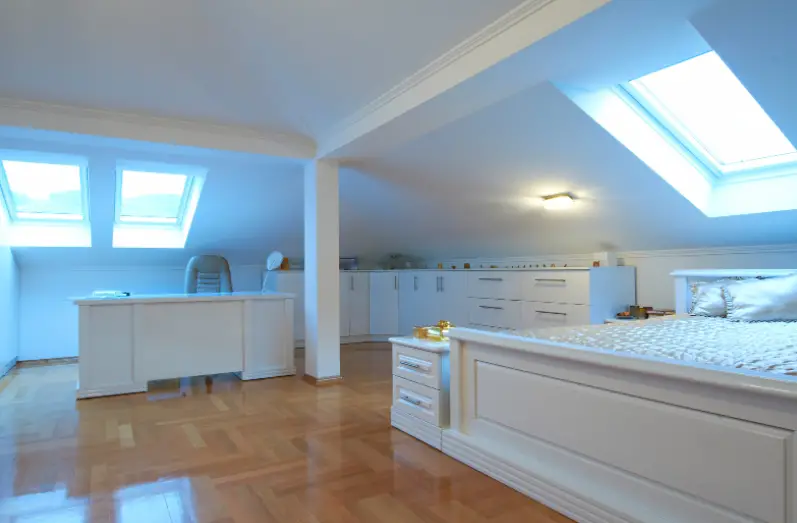
What are the benefits of an air purifier in the bedroom?
Now that we’ve talked about air purifiers and sleep, what exactly do air purifiers have to offer when it comes to bedrooms? Here’s why you should get one for your sleeping space:
1. You sleep better
Sleep duration, according to a study, is negatively affected by bad air quality due to pollution. As mentioned above, a stuffy feeling and dusty surroundings will make you cough and sneeze – and it’s worse for those with allergies and/or asthma. This causes you to constantly wake up in the middle of the night because of such disruptive symptoms.
If your indoor air was a little cleaner thanks to an air purifier, these respiratory symptoms wouldn’t manifest too much. You wouldn’t be developing restlessness and insomnia due to constant coughing and sneezing.
Consequently, here’s how an air purifier helps you to sleep better:
- It improves your mood and mental health. Remember when you spent all night cram-reviewing for a test and you woke up feeling haggard and irritated? Mental health is strongly linked to lack of sleep.
- If you’ve been very exhausted nowadays due to a lot of problems, perhaps a little dozing off will help. Sleeping in a room with clean air will make you feel more relaxed.
- You’ll have a stronger immune system. When you sleep sufficiently, you won’t be an easy target for the flu and other viruses. That’s because your body is often in “repair mode” during nighttime when you sleep, which is why you need to boost your immune system by getting the right amount of sleep.
- When you sleep, your cells will have sufficient time to ward off any attacks on your immune system. Coughing in the middle of the night disrupts this “repair mode”, causing your cells to be in disarray and making you vulnerable to colds and the flu.
- It wards off most heart problems. Did you know that the risk of heart attacks and high blood pressure can be lessened with proper sleep? Thanks to cortisol, which only comes out of your system when you lack sleep, your heart takes the heavy burden eventually.
- You can keep this from happening by simply getting enough shut-eye. If you don’t have to wake up in the middle of the night due to coughing and sneezing, you will be well-rested and won’t release cortisol.
- You will maintain a healthy weight. Maintaining the right sleeping schedule will keep you off the midnight snack routine. If you become restless in the middle of the night due to an asthma attack or hay fever symptoms, you’re likely to grab something from your fridge, which will have an impact on your weight.
- Improved focus . When you sleep soundly and enough for your age without coughing and sneezing at night, your decision-making skills won’t get deteriorated. Sleeping better just means you’ll have better energy when handling your next PowerPoint presentation at work. If you’re a student, you’ll likely do better with your exams.
2. You wake up better
As mentioned above, your sleeping schedule equates to your overall health when you wake up. If you’ve been feeling down in the dumps due to an overworked schedule or if something has been bothering you, getting a well-deserved R&R will help you focus on your next tasks ahead.
Nonetheless, it will be hard for you to sleep in a room that’s too stuffy and dirty, especially if you have allergies or asthma (or any other respiratory/health conditions).
If most of your time is spent indoors (e.g. WFH setting or online classes), we highly recommend an air purifier in your office/room where you spend most of your time working/studying. It will greatly improve your focus, decision-making skills, and mood.
3. Your pet won’t worsen your allergies
Nowadays, many people are starting to adopt pets due to the boredom of always staying at home (due to the worldwide health emergency). Here’s the problem: you want to be productive at work but Fido’s pet dander is all over the place. You sneeze uncontrollably due to your hay fever. What can you do?
The answer is simple – turn on your air purifier and let the magic (or science, rather) take care of the rest. The HEPA filter will suck up the pet dander like a vacuum cleaner and before you know it – you’re breathing fur-free air.
Of course, that doesn’t mean you can neglect your pet owner’s duties! Aside from an air purifier, you should also maintain a healthy grooming habit and schedule. If you can, limit your dog (or cat) from entering the house so they won’t spread their dander everywhere.
If you don’t have a pet yet but you’re considering one, some hypoallergenic (non-shedding or low-shedding) breeds include Yorkshire Terriers (dog) and the Sphynx (cat).
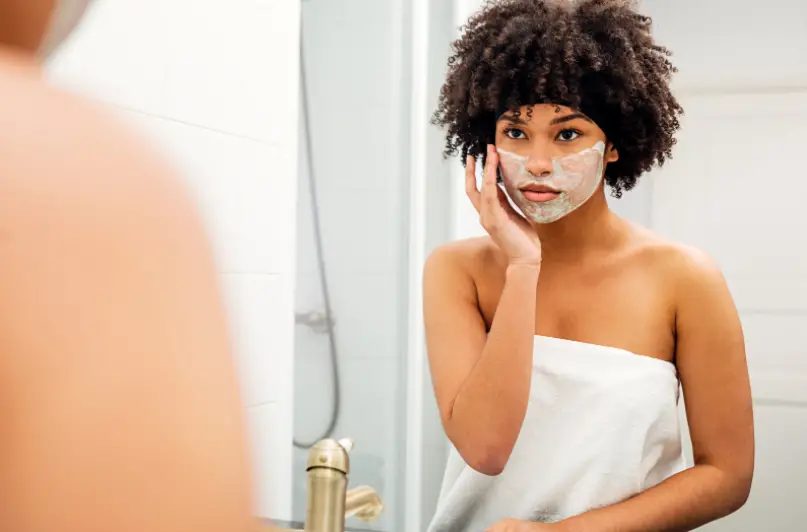
Does an air purifier benefit your skin?
Yes, air purifiers can benefit your skin. After all, there’s a study linking air pollution with skin impurities, such as premature aging and even skin cancer. With that said, here are some ways air purifiers will help improve your skin appearance:
1. Less sneezing = less face rubbing
Do you know what the most annoying problem with allergic rhinitis is? Rubbing your nose and eyes uncontrollably due to the symptoms – this problem can eventually become a cause of wrinkles. It’s easy to tell that you look sick if you’re having hay fever symptoms because your face is a mess.
The problem worsens when you’re wearing make-up because you also ruin it when your allergy symptoms start acting up – sometimes, even a waterproof lipstick will get ruined in seconds!
For most people, the face is the most important part of the skin (and also the most sensitive), which is why we need to take extra good care of it. By maintaining cleaner indoor air, you’ll less likely sneeze and therefore, you won’t have to put up with these annoying skin-tugging antics.
2. It may alleviate/ward off skin problems
Some VOCs found in paint can impact your skin, according to this study. Although it’s more common that volatile organic compounds from household chemical fumes irritate your eyes and throat, in rare cases, it can cause problems to those with sensitive skin.
Nonetheless, even the impact of VOCs on your eyes and nose will also make you tug your skin more frequently due to irritation, resulting in a similar problem as we mentioned above. An air purifier might not directly help with your skin problems but because it cleans the air, your skin will get less irritated.
Conclusion
So, should everyone have an air purifier? We believe so. With the plethora of reasons to buy an air purifier that we mentioned above, it’s clear as day why they are worth investing in. From helping you sleep better to alleviating various health disturbances, such as excessive coughing and allergies, air purifiers are great companions to have at home.
When combined with proper hygiene habits, regular house cleaning, and the responsible opening/closing of your windows and air vents, an air purifier will improve your overall life quality, provided that it’s suited well for your room size and pollution concerns. We hope this article made the benefits of an air purifier clear as day for you!

